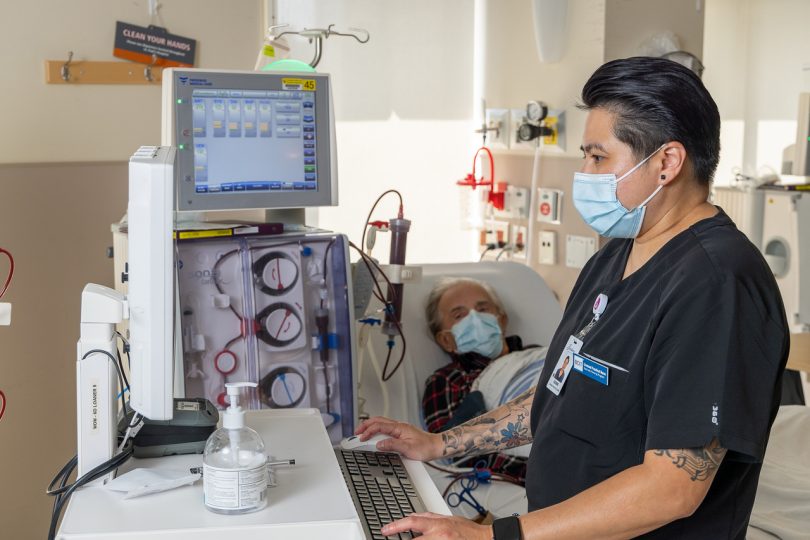A Canadian kidney research organization that has strong ties to Providence Health Care has received a new $11.8 million investment to support its work through 2027.
The Can-SOLVE CKD Network is Canada’s largest-ever kidney research initiative. It is a partnership of patients, scientists, and health care professionals working on ways to help the almost four million Canadians affected by chronic kidney disease. St. Paul’s Foundation has been one of the network’s largest funders.
‘Significant boost’ for kidney research
The network will receive $3.75 million in new funding from the Canadian Institutes of Health Research (CIHR), matched by more than $8 million raised from more than 60 partners. This more than $11.8 million in funding allows the network to mobilize innovations in diagnosis, treatment, and care to enhance kidney health.
“This is a significant boost for Canadian kidney research that builds upon the successes of Can-SOLVE CKD’s first phase,” says Dr. Adeera Levin, Co-Principal Investigator of the Can-SOLVE CKD Network. Dr. Levin is also head of the Division of Nephrology at the University of British Columbia, and a consultant nephrologist at St. Paul’s Hospital.

That initial phase was announced in 2016.
“We are striving to change the culture of research, create new knowledge about kidney health, and enhance Canada’s kidney research landscape. Now, as we look towards Phase 2, this investment by CIHR and our partners will take our work to the next level and effect real changes in how Canadians with kidney disease are treated and cared for.”
Eighteen research projects so far
Can-SOLVE CKD Phase 2 is focused on mobilizing the findings of projects launched during the network’s first five years. To date, Can-SOLVE CKD has undertaken 18 research projects based on patients’ experiences and priorities. Nine of these have been selected through an internal review process for implementation during Phase 2. Funding will support project teams to effectively move innovative kidney health solutions into health care policy and practice across Canada.
“Can-SOLVE CKD research is already improving living donor kidney transplantation, supporting self-management of kidney disease, and enhancing kidney health screening in rural and remote Indigenous communities,” says Heather Harris, Can-SOLVE CKD Executive Director.
In addition to new interventions and innovations, Can-SOLVE CKD Phase 2 will focus on changing the culture of kidney research in several priority areas:
- Enhancing Indigenous cultural competency in research
- Advancing principles of equity, diversity, and inclusion (EDI)
- Creating new resources and infrastructure to enhance Canada’s leadership in kidney-focused research and clinical trials.
Kidney disease affects one in 10 Canadians. The Canadian health care system spends nearly $2.5 billion annually caring for those who are on dialysis. Health care costs for those living with chronic kidney disease exceed $40 billion per year in Canada. Can-SOLVE CKD is committed to reducing the human and social toll of chronic kidney disease by partnering with patients to understand what matters most and developing innovative solutions.
Click here for the original news release.





